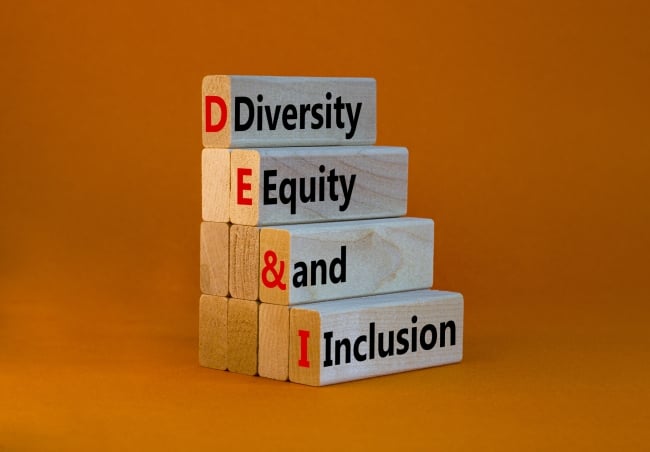You have /5 articles left.
Sign up for a free account or log in.

Dzmitry Dzemidovich/iStock/Getty Images Plus
We are living in an era of escalating politicized actions against diversity, equity and inclusion in higher education, as apparent in the recent forced resignations of the presidents of Harvard University and the University of Pennsylvania. Outside the Ivy League, Utah is the latest state to ban DEI initiatives in public universities, following similar moves in Florida and Texas, and many more states have proposed legislation to this effect.
It seems clear that institutions’ presidents will be generally unable to serve as effective bulwarks against these attacks. Anti-DEI efforts are increasingly operating in ways that produce public and potentially existential crises for institutions.
Presidents have the duty to navigate these challenges in ways that protect institutional reputations as well as preserve positive relationships with parents, donors, government officials, community stakeholders and the media. These goals can conflict with taking a stand on intellectual and moral principles, and DEI offices and programs are increasingly being thrown to the lions for the sake of personal and institutional preservation.
If DEI efforts are to survive this moment, I believe that it will be up to the programs themselves (and their institutional allies) to engage in effective and proactive self-defense. I take this idea of community self-defense from Huey P. Newton’s classic text Revolutionary Suicide. DEI programs and their supporters must plan, prepare for and engage in defensive responses before they are emotionally, physically and financially destroyed. There will be no allowances for being reactive. To paraphrase the book of Ecclesiastes, now is indeed the time to be gathering stones together.
To prepare for and engage in such self-defense, programs and allies must, first and foremost, continue to generally educate people about the true intention and purpose of DEI. As Lily Zheng has noted, a fictional conceptualization of DEI drives much of the anti-DEI animus that higher ed is currently experiencing. As educators, we must use our pedagogical skills to emphasize that DEI work isn’t about policing thought, discriminating against white folk and men, giving jobs to unqualified candidates based on their identities instead of their aptitude, or taking away anyone’s privilege.
Rather, DEI activities are designed to address and dismantle structures and systems that perpetuate universal harm. At their core, DEI efforts are aspirations toward and actualizations of the platinum rule (“Do unto others as they would like done to them”). This expression of compassionate human decency is something that—it would seem—all people should aspire to, regardless of their personal political affiliation.
In order to be maximally effective, this education must be delivered using a variety of tactics. Staff and faculty allies should be encouraged to write essays and op-eds (like this) that champion DEI in publications that are read by general audiences and use plain, jargon-free language. Advocates can also be proactive in educating senior academic leadership and boards about ongoing DEI efforts. It should never be assumed that institutional leaders have an accurate and nuanced understanding of DEI initiatives: educating these groups can produce new allies in the defense of these programs.
Additionally, alumni, parents and other organizational stakeholders can be engaged in the creation of external entities that advocate for DEI programming. Increasingly, campus leaders are being required to interact with independent external alumni organizations (such as the Cornell Free Speech Alliance) that seek to terminate campus DEI activities. It is imperative that additional independent groups be formed that can provide effective and sound counternarratives to these anti-DEI voices.
No matter the mode of delivery, proactive self-defense efforts must also make clear that DEI initiatives are not designed or intended to be instruments of condemnation or forced indoctrination. Newton teaches us that finding welcome ways to open people’s eyes to injustice is far more productive than demeaning them for failing to perceive that injustice. Indeed, some of the current pushback against DEI is rooted in defensive reactions from individuals who fear that these efforts amount to nothing more than disparaging independent opinion and policing thought, when, in truth, they are anything but that.
DEI programs can also mount a proactive defense by working to embed shared equity leadership models throughout their institutions. The distributed nature of SEL results in DEI organizational structures that are inherently hard to knock down, as there is no one individual or small set of people or offices that can be targeted for defunding or removal.
Additionally, programs should identify and seek support from tenured faculty members (especially tenured full professors) who can serve as effective defensive allies. As I have previously detailed, tenured faculty members enjoy special employment protections that entail an institutional duty to support and advocate for colleagues and programs that may not have the full ability to do so themselves.
I believe that through these actions, DEI initiatives in higher education can mount effective and proactive defenses against the multiple forces that wish to see them fail. There is no superhero coming to save these critical programs—and it seems clear that many institutional presidents face competing pressures that preclude them from acting as truly effective advocates. If we wish to create and advance structures in higher education that are just, equitable and inclusive, it is essential that we meaningfully engage in this critical defensive work ourselves.








